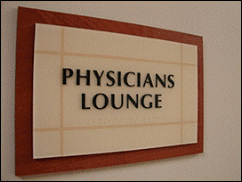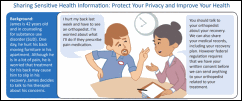EPtalk by Dr. Jayne 1/18/18

The US News & World Report “Best Health Care Jobs” list is out, with a confusing Top 10 that illustrates how the list has become irrelevant. Pediatrician and obstetrician / gynecologist are ranked separately from physician in the top 10, and looking into the top 25, we find that anesthesiologist, surgeon, and psychiatrist are also separated out. Perhaps they’re confusing “physician” with “primary care physician,” but that doesn’t make sense with the separation of pediatrician.
Regardless of how you slice and dice the MDs and DOs, the physician assistants and nurse practitioners beat us at #2 and #3, respectively. Topping the list was dentist.
Even if you go into the “Best Health Care Support Jobs” list you don’t find healthcare IT folk, which is sad since I think we have some of the best jobs in the business. We get to play a key role in supporting all the other healthcare jobs and figuring out ways to get them the information they need to do their jobs better. We also keep the time and attendance systems running to ensure people get scheduled, the payroll systems up to ensure they get paid, the learning management systems available to train, the drug cabinets dispensing, and the equipment tracking and bed board systems running, not to mention the countless other systems we support. Here’s to healthcare IT!

The hot topic around the physicians lounge this morning was the President’s recent physical. Everyone had an opinion despite not having examined the patient. There was quite a bit of debate about the inclusion of cognitive testing, which isn’t part of a traditional examination of the President. The Montreal Cognitive Assessment was administered, and as of Wednesday afternoon, the website was down with a message that it was “under maintenance.”
It would be simplistic to say that passing that test means someone has ideal mental health. It screens for mild cognitive dysfunction, looking at memory, attention, and other processes. It doesn’t screen for depression, anxiety, personality disorders, or a host of other conditions that fall under the spectrum of mental health. Focusing on this test as a sole marker of mental health does a tremendous disservice to the many patients who face mental health issues every day.
There was also quite a bit of discussion regarding Eric Topol, Sanjay Gupta, and their curbside reviews of the released Presidential cardiovascular data. There was much debate about the definition of “excellent” health as mentioned by the Navy physician. I don’t know anything about the physician who performed the examination and his usual patient population, but I know that many of us in the trenches (and anyone who has been sued) tend to avoid such superlative terms when speaking with or about patients. We’re more likely to say someone’s values are within established guidelines or are within the published normal range, or to say they have average risk based on their history and physical, than we are to say someone is in “excellent” health. I haven’t seen physicians be so passionate about a “checkup” in a long time, but I doubt it’s going to lead to a boom in primary care careers.

Props to ONC for its new handout (which it refers to as a graphic novel) outlining how sharing medical information can help care teams make better decisions, and how not sharing information can lead to negative outcomes. It uses the example of someone in substance abuse recovery who might end up being prescribed opioid pain medication, which is a real-world scenario that I see often in my line of work. As much as many of us complain about ONC, their efforts in this situation are appreciated.

AMIA has issued a Call for Participation for its 2018 Annual Symposium, to be held November 3-7, 2018 in San Francisco. This year’s overall theme is “Data, Technology, and Innovation for Better Health” and submissions close March 8. AMIA seems to love San Francisco, Washington, DC, and Chicago for conferences. For those of us on limited conference budgets, how about some variety venues such as Denver, San Diego, Dallas, or Atlanta? Most of those have pretty decent weather in November.
Weird news of the day: BMJ Case Reports documents a situation where a man who tried to hold in a sneeze ended up with a perforated throat. Since sneezes can propel droplets at over 100 miles per hour, I appreciate his willingness to keep it to himself. He probably would have been better off sneezing into a tissue or into his elbow if no other alternatives were available. Blocking a high-pressure sneeze can also result in damage to the ear drums and pulled muscles.
A reader reached out in response to my recent ponderings around Epic’s Share Everywhere. It went live recently for patients at UCSF. I asked whether there are any patient case stories yet, but haven’t had a chance to hear back. Several of the hospitals in my area use Epic, but I haven’t heard of any recent upgrades. I’m heading back to the clinical trenches this weekend and will remain hopeful that a patient will roll in, give me a token, and grant access to a wealth of medical records.
That’s more of a pipe dream, as is the hope that the regional influenza peak will start winding down. Our patient volumes continue to be more than double what they usually run, so staff is really getting worn down and we’re ready for some relief. There were thousands of new cases of flu across the state this week, which is roughly 20 percent of the cases reported this season, so I’m not thinking we’ve hit peak yet. Just short of 700 people in our state have died of influenza this season and several colleagues are reaching out to patients asking them to cancel office visits if they have flu-like symptoms.
Good luck to everyone as you try to stay healthy and avoid influenza – wash your hands, avoid crowds, and cover your cough, but don’t stifle your sneeze.

Email Dr. Jayne.

Move your quotes to where they should be and it's no longer politics-in-the-blog, but instead a fact that's true at…